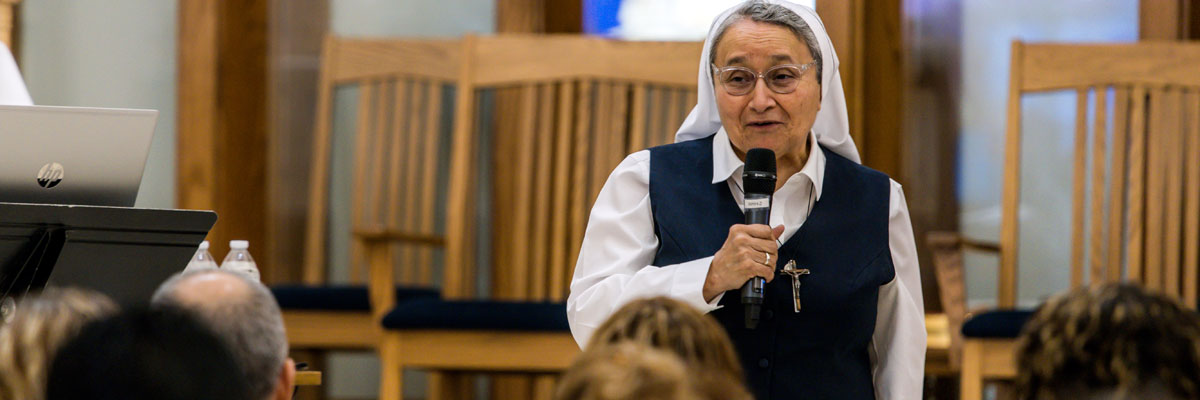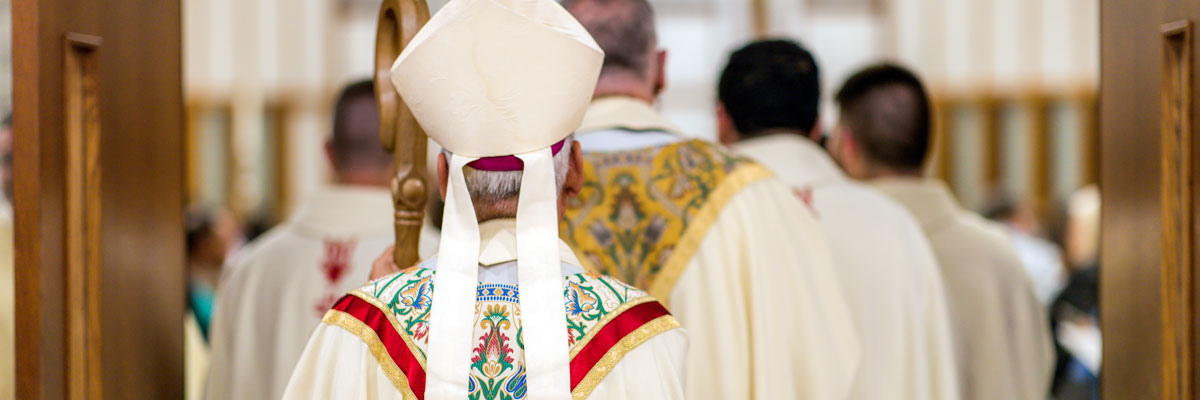Official Website of the
Catholic Diocese of Little Rock
Baptism of the Lord 2021
Published: January 10, 2021
Bishop Anthony B. Taylor prepared this homily for Sunday, Jan. 10, 2021. He was unable to preach it because of a cancellation.

Bishop Taylor
Most people think there exist only two basic options when confronted with evil: fight or flight. Resistance or retreat. Giving aggressors a taste of their own medicine or tucking one's tail and playing dead. Violent revolution or abject resignation to the domination of the powers that be.
Our culture admires those who expose themselves to danger in order to use violence to confront violence and we recognize as heroes those who pay the ultimate price. But today's feast reminds us that there is a third way that requires even more courage, that of non-violent resistance to evil. That of persuasion rather than coercion.
This is not pacifism or acquiescence, it is the use of moral force rather than physical force. It is the approach taken by John the Baptist and Jesus, which comes to mind as we celebrate this feast of the Baptism of the Lord. It is the non-violent approach taken by Dr. Martin Luther King Jr., as we celebrate his national holiday.
That's the third way, the way of Jesus Christ. Not fight or flight, but rather standing there with the even greater courage required to resist evil with the costly, personally vulnerable, non-violent force of good.
In this regard, we see an important progression between the ritual Jewish baptism John was administering in preparation for the arrival of the Messiah and the sacramental Christian baptism that you and I received, which came into existence only after Jesus' death and resurrection. Both involve renouncing the world's way of doing things in favor of God's way of doing things.
John's baptism announces the non-violent arrival of the Kingdom of God. He resists evil with forceful words intended to change hearts permanently rather than supporting an insurgency of his contemporaries capable only of compelling temporary compliance, at most. He calls people to repent not only of personal sins, but also of their sometimes unwitting participation in the oppression of others, and this is what earned him the ire of the powers that be.
John wasn't arrested for telling people to quit breaking the Ten Commandments. He was arrested for speaking a truth that unmasked not only the moral failings of the king, but also the craven hypocrisy of his supporters, including the religious leaders. But in the end, which approach was more effective? The violent sword that took off John's head, or his challenging words that continue to convict us 2,000 years later? Only the latter changed hearts.
Then Jesus takes us two big steps further: his baptism with water and then his baptism with the Holy Spirit. Our Christian baptism with water isn't just for repentance like that of John, though it does wash away sins — that's just the beginning. Our baptism unites us with Jesus in his death and resurrection, whereby we die figuratively to the kingdom of this world and its way of doing things, and rise again reborn sacramentally to a new life in the Kingdom of God and God's way of doing things.
And in his death and resurrection, Jesus shows us just what that way of doing things is: responding to violence with self-sacrificing love. Convicting the conscience of the oppressor by not responding in kind. Shaming the enemy with the realization that he's not our enemy, but only a brother whom we love and forgive. Turning the other cheek, going the extra mile, giving him your cloak, dying to self.
That's the third way, the way of Jesus Christ. Not fight or flight, but rather standing there with the even greater courage required to resist evil with the costly, personally vulnerable, non-violent force of good.
Where do we get this courage? Through the baptism with the Holy Spirit promised in today's Gospel, which we receive in the sacrament of confirmation. Without the empowerment that God gives us, we would be ill equipped to rise to the occasion when faced with evil, and thus likely to choose the ultimately ineffective worldly response of fight or flight.
In confirmation you receive the gifts of the Holy Spirit for a purpose: To enable you to live as Jesus did, thus changing enemies into friends and thereby ushering in the Kingdom of God proclaimed by John the Baptist and established through the death and resurrection of Jesus Christ.









